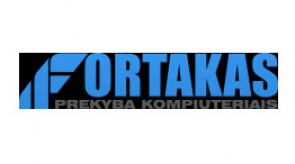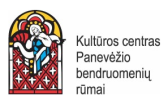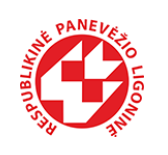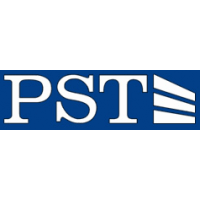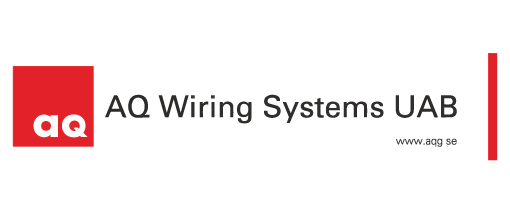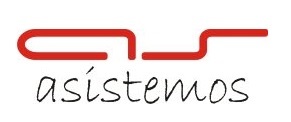Informatics Engineering
 Study mode and duration time: full-time (3 years)
Study mode and duration time: full-time (3 years)
Study programme is carried out: Panevėžio kolegija/State Higher Education Institution, Faculty of Technology Sciences
Degree and professional qualification: Professional Bachelor of Informatics
Volume of the study programme in credits: 180 ECTS credit
Why choose this program? The study program is intended for those who are interested in modern computer networking and server, cloud computing technologies. Here you will learn how to design and manage local and global networks, deploy and administer physical and virtual servers, move IT services to the cloud, create jobs and network software. After graduation, they will be able to be those invisible, unknown network administrators who do visible work – improve network security, install server software, and catch cybercriminals. Students have access to obtain the certificate of the CISCO computer networks academy.
Please check Rules for Admission for foreigners
| General modules (subjects) |
|---|
| Communication module |
| Study Fields modules (subjects) |
| Physics |
| Professional activity modelling |
| Databases and information systems |
| Safety at work |
| Information and communication technology module |
| Higher mathematics module |
| Computer architecture and operating systems module |
| Computer aided design |
| Programming module |
| Study Fields modules (subjects) |
|---|
| Programming module |
| Computer networks I module |
| Economics and research module |
| Computer Networks II module (Practice is included in the content of the module) |
| Electronics systems module |
| One of the alternative modules: Internet of things / Robotics |
| College Established and Optional modules (subjects) |
| Students are allowed to select general optional college study subjects which have been foreseen by the Director‘s order: OS1, OS2 |
| Practices |
| Technological practice module |
| Computer Network Administration Practice (Practice is included in the content of the module). |
| Study Fields modules (subjects) |
|---|
| Electronics systems module |
| Internet technologies |
| Server management module |
| Programming for mobile devices |
| Software engineering |
| Informatics law and computer network security module |
| One of the alternative modules: Software defined networks / Cellular networks |
| Practices |
| Profession practice module |
| Final practice module |
| Final Project module |
Access to Professional activity Computer network administration study programme students acquire competences to work as computer network and systems administrators, IT engineers and programmers in the companies, organizations and offices which use computer network technologies and computer hardware.
Objective(s) of the study programme: The aim of the programme is to develop the fully educated, ethically responsible, creative and entrepreneurial personality, able to learn and work independently, or in a team; proactive, taking personal responsibility, able to compete in the market of rapidly changing technologies, products and services; the personality capable of applying informatics and electronic techniques, principles and technologies for the design of secure computer systems and networks. The aim is to develop the personality capable of implementing, developing, testing and evaluating relevant professional problems in various fields of Professional activity.
Opportunities for international studies: students of the programme have the opportunity to study according to the ERASMUS student exchange program.
Learning outcomes:
- Ability to explain the basic facts, concepts, theories and mathematical methods related to computer operation, computer hardware and software, possibilities for practical applications and computer communication, and applicable solutions that relate to important historical, current and potential developments and trends in the field of computer engineering in the future.
- Ability to explain the principles of algorithm development and analysis, programming paradigms, languages and technologies, principles of human-computer interaction, typical stages of the software life cycle and methods of software development and maintenance.
- Ability to explain how the business, industrial, economic and social context affects professional practices defined by ethical standards and regulated by legal requirements, including data protection, intellectual property rights, contracts, product safety, liability and other related issues.
- Ability to apply the knowledge in the field of informatics engineering by developing safe and other informatics applied solutions that meet the relevant criteria to solve specific problems of professional activity.
- Ability to explain the methods of development of computer and other specialized digital techniques, its structure and principles of operation, and its application to specific challenges.
- Ability to describe the problem(s) of a specific professional activity in the field of computer engineering studied; the ability to prepare, analyse and evaluate the data, information, solutions to the problem(s) according to specific criteria and base the decisions on reasoned conclusions.
- Ability to apply relevant computer science and electronic engineering techniques in formulating and solving applications in various fields.
- Ability to independently select software and hardware developing new or improving existing computer and computer network systems.
- Ability to implement specialized software for computer and computer network systems using relevant standards, typical life cycle stages and project management methods.
- Ability to evaluate computer and communication systems according to the criteria of operation, security, reliability, and properly implement the maintenance and development of computer systems.
- Ability to prepare relevant specification, design or other documentation necessary for the development of a product or service in the field of computer engineering.
- Ability to communicate professionally in the state and at least one foreign language with specialist audiences, work in a team in accordance with the principles of professional, ethical behaviour and social responsibility; ability to plan and organize activities on the basis of legal and standard documentation.
- Ability to learn independently, in order to achieve continuous personal, professional development and work responsibly, taking the initiative and personal responsibility, demonstrating creativity, solving tasks and problems of professional activity.


